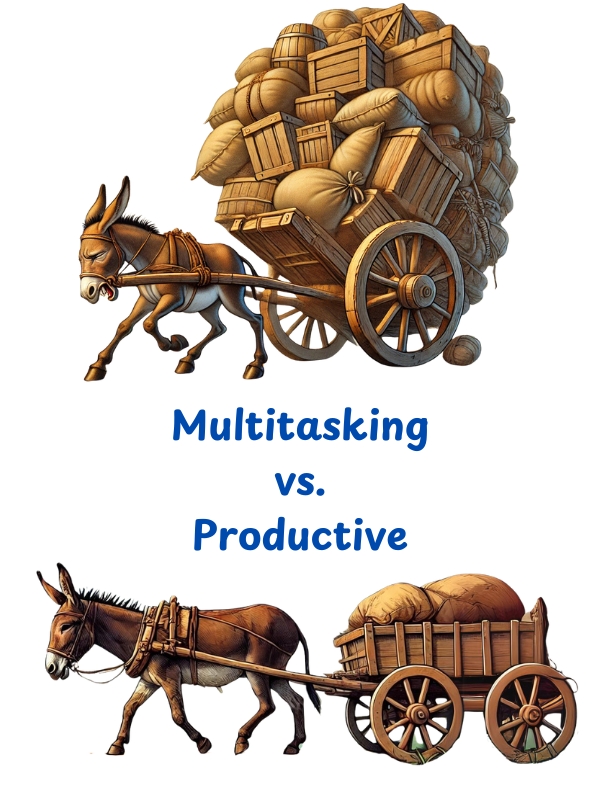
Have you ever said, “I’m just so busy!” when someone asked how you’re doing? These days, it feels like everyone is super busy—rushing from one thing to the next and barely having time to relax. But is being busy really something to be proud of? Is it a sign of success, or are we just stressing ourselves out? And most importantly, how to deal with stress at work becomes crucial when the pressure builds up. Stress might seem like part of the job, but too much of it can harm your health and productivity, leading to burnout if not managed well. So, let’s dive into why stress has become so common, how it can lead to burnout, and what you can do to avoid it and find balance.
This post will talk about how stress and busyness have become like badges of honor that people show off. But too much stress isn’t something to brag about. It can actually harm your health and productivity. So, let’s take a look at why stress has become so common, how it can lead to burnout, and what you can do to avoid it and be more balanced.
The Rise of Busyness as a Status Symbol

Long ago, having free time was a symbol of wealth. Rich people didn’t need to work, so they spent time relaxing and enjoying life. But now, things have changed. In today’s world, being super busy is seen as a sign that you’re important and successful.
Why is that? Well, with technology like smartphones and laptops, we’re always connected to work. We can check emails, do tasks, or attend meetings anytime, anywhere. This has created a culture where people feel like they need to be busy all the time to be seen as valuable.
Plus, social media doesn’t help. People post about their busy schedules, late-night work sessions, or big projects they’re working on. This makes others feel like they have to keep up. It creates competition, where everyone wants to show how hardworking and successful they are by staying constantly “on the go.”
But is being busy really a good thing? Or is it a warning that we’re doing too much and need to slow down?
Busy vs. Productive: What’s the Difference?

Being busy doesn’t always mean being productive. You might be running around, doing a lot of things, but not actually getting the important stuff done. Sometimes, we fill our days with tasks that don’t matter much, just to feel like we’re accomplishing something.
Let’s say you’re always rushing between meetings, emails, and projects, but by the end of the day, you don’t feel like you’ve really achieved anything important. That’s a big sign that you’re just busy, not productive.
Here are some ways to know if you’re just busy:
- Multitasking all the time: You might think you’re getting a lot done by doing many things at once, but research shows multitasking actually makes you less efficient.
- Always feeling rushed: If you’re constantly running from one task to another but not making progress, you’re just stressing yourself out without real results.
- Saying yes to everything: If you say yes to every request or project, you’re probably overloading yourself, which leads to stress and burnout.
Learning how to deal with stress at work is key to breaking this cycle. Being busy doesn’t always mean you’re moving forward. It’s more important to focus on what really matters.
What Is Burnout?
Video: The 5 Stages of Burnout [How To Recognize Them]
Stress can be helpful sometimes. According to the Yerkes-Dodson Law, a little stress can push you to get things done, like meeting a deadline or preparing for a big presentation. But too much stress for too long is harmful. This can lead to burnout, which is when you feel so tired and overwhelmed that you stop being productive.
Burnout is more than just feeling tired after a long day. It’s like your body and mind can’t handle any more stress, and you start feeling exhausted, even after resting. The World Health Organization describes burnout as work-related stress that hasn’t been managed well.
Why We Want to Look Busy
So why do people keep pushing themselves to be so busy? One reason is the fear of falling behind. In today’s competitive world, we worry that if we aren’t working hard all the time, we’ll miss out on opportunities, or someone else will take our spot.
Another reason is external validation. When we act super busy, people often give us praise or recognition. This can make us feel important. It’s like we need to show others how hardworking we are to get approval.
Finally, comparison plays a big part. Social media lets us see what everyone else is doing, and it can make us feel like we’re not doing enough. We see other people hustling, and we think we need to work even harder to keep up.
But chasing busyness doesn’t work in the long run. Eventually, the stress will catch up with you, and it’s important to learn how to deal with stress at work so you can be productive without burning out.
How to Break Free from the Busyness Trap
Feeling overwhelmed by the constant need to stay busy? Here’s how you can break free from the trap and focus on what really matters:
- Change Your Mindset: Start by understanding that being busy doesn’t always mean you’re successful. What’s more important is deep work—focused, uninterrupted time spent on meaningful tasks.
- Set Boundaries: It’s okay to say no sometimes! Setting boundaries helps protect your time and energy.
- Prioritize the Right Tasks: Learn how to prioritize by using tools like the Eisenhower Matrix, which helps you figure out what’s important and what’s urgent.
- Take Care of Yourself: Don’t forget about self-care! Taking breaks, exercising, or practicing mindfulness can lower your stress levels and make you more productive.
- Redefine Success: Success doesn’t mean always being busy. Real success is about finding balance—doing meaningful work while also having time for yourself.
Conclusion
In a world that celebrates busyness, it’s easy to think that stress and long hours are signs of success. But the truth is, too much stress can lead to burnout, which hurts both your health and your productivity.
The key to real success is learning how to deal with stress at work, setting clear priorities, and taking care of yourself. By focusing on what truly matters and avoiding the busyness trap, you’ll find that you can be more productive without sacrificing your well-being.